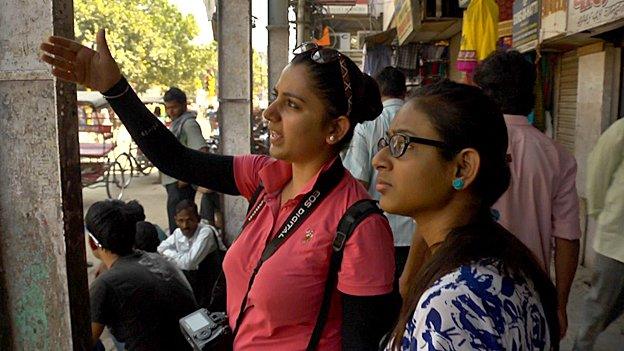Africa's new breed of solar energy entrepreneurs
- Published

Let there be light: A new breed of entrepreneur is bringing solar power to millions of Africans who don't have access to mains electricity
African economies may be booming, but continued growth and quality of life are being jeopardised by lack of power.
The International Energy Agency (IEA) estimates 585 million people in sub-Saharan Africa lack access to electricity, with the electrification rate as low as 14.2% in rural areas.
The problem is most acute in East Africa, where only 23% of Kenyans; 10.8% of Rwandans; and 14.8% of Tanzanians have access to an electricity supply, according to the World Bank.
In spite of efforts to get people onto the grid, population growth has meant these figures stay fairly steady, with the majority of people still using costly and unhealthy forms of energy for cooking and lighting.
A number of companies and organisations on the continent have identified solar power as the solution.
And a new breed of "solar-preneurs" is emerging, increasing access to power and generating revenues at the same time.
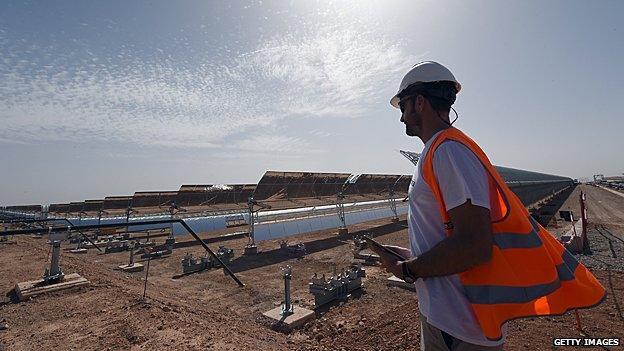
This solar array is in Morocco, but harnessing solar power doesn't have to be done at this scale
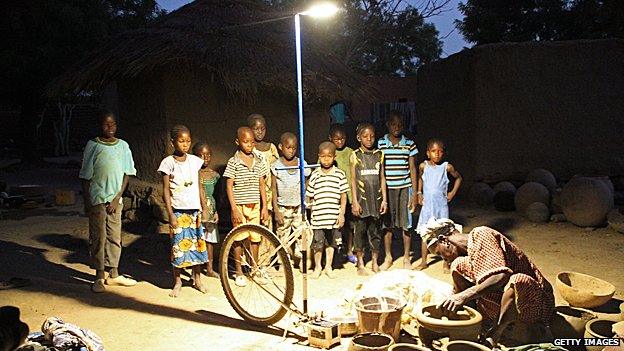
Small, portable units like this solar-powered street light in Mali can make major changes to a community
Modular living
"Solar is a valuable source of distributed energy," says Sachi DeCou, co-founder of Juabar, a company operating a network of solar charging kiosks in Tanzania.
"In many places in sub-Saharan Africa, populations are quite dispersed. Solar is modular so it can be sized to fit the needs of anywhere, from a light to a business, household to an entire village."
In agreement is Jesse Moore, managing director at M-Kopa Solar, which provides "pay-as-you-go" renewable energy for off-grid households in Kenya, Uganda and Tanzania.
Off-grid households in East Africa, which also are largely low-income households, spend about $0.50-$0.60 (33p-40p) per day on kerosene lighting and basic charging costs, he says.
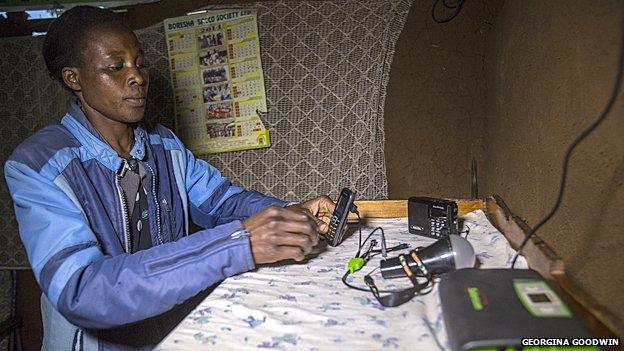
M-Kopa Solar provides pay-as-you-go energy to people off the grid paid for by mobile money transfer
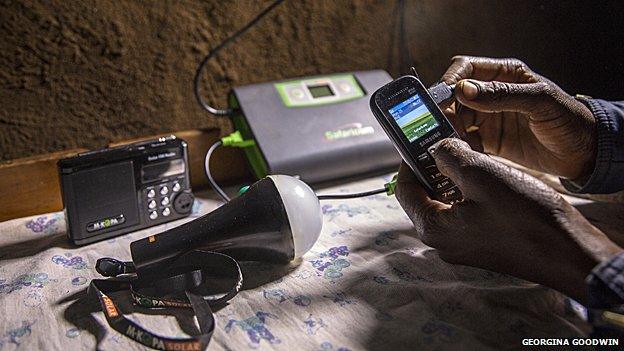
The kit comes with several lights, a torch, a solar radio, a USB phone charging port and a solar panel
"With more than 20 million homes off the grid, this means over $3bn (£2bn) is spent each year on these inefficient and unsafe energy substitutes."
Given the inefficiencies and high costs associated with alternative power sources, solar has proven hugely popular in places where it has been available.
M-Kopa Solar provides power to more than 140,000 households in East Africa for $0.45 per day, and is adding over 4,000 homes each week. And with this increased uptake comes economic opportunities for the companies that provide it.
M-Kopa Solar's revenues are nearing $20m per year, and the company is starting to licence its technology in other markets, such as Ghana.
"M-Kopa is demonstrating that off-grid energy will be as revolutionary to Africa in the coming decades as mobile telecommunications have been in recent years. Solar is a massive opportunity for entrepreneurs and investors alike," Mr Moore says.
Build a business
Other business models are seeking to allow ordinary African individuals to start their own solar businesses.
Ms DeCou's Juabar, for example, builds and operates a network of solar charging kiosks in Tanzania which it leases to entrepreneurs, who then offer electricity services to their communities.
Juabar's entrepreneurs are currently earning profits of between $75 and $150 per month, with the company currently leasing out 30 kiosks to Tanzanians and looking to raise $15,000 through crowdfunding in order to increase that number to 50.
"There has been a lot of development in the pay-as-you-go solar space over the past few years, facilitating access by reducing the upfront costs of purchasing a solar system," Ms DeCou says.
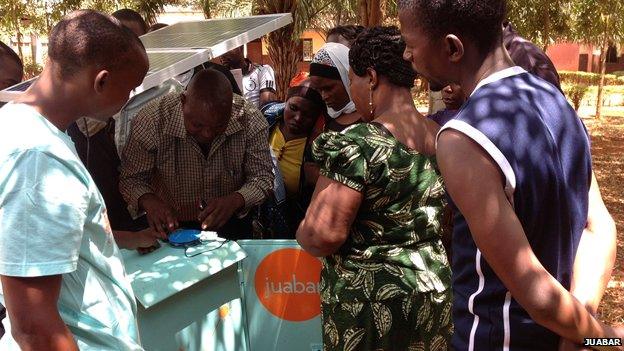
New solar kiosk entrepreneurs being trained by Juabar
"As we continue to make solar technology more widely available and affordable, one of the most exciting areas of opportunity becomes what you can do with this solar electricity.
"Solar is a source of reliable, accessible electricity. Once you can develop that access you have the opportunity to develop new ways to use that electricity to meet community needs. That is what I get most excited about."
Henri Nyakarundi is employing a similar model in Rwanda. His company has developed a mobile solar charging kiosk.
The kiosks are operated under a franchise model, offering Rwandans the chance to run income-generating businesses by providing services such as charging of electronics and sales of electronic vouchers.
Wi-fi hotspots will be available from the kiosks soon - there are already 24 up and running with another 100 due this year.
Mr Nyakarundi says he plans to offer a single distribution channel for different products, services and content, while providing opportunities for entrepreneurship through a low-cost franchise model.
He believes the opportunities to create solar businesses in Africa are "huge", but as yet, they only exist at the micro level. The next step, he believes, is to move to the macro level - producing power for the grid through solar.
"However macro level requires large investment, and unfortunately local banks are still not willing to finance such projects unless you are a big company," Mr Nyakarundi says.
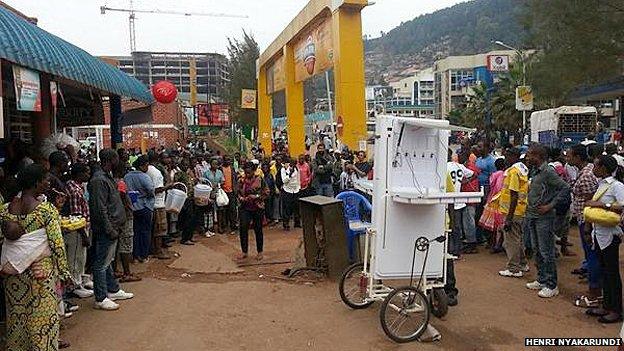
One of Henry Nyakarundi's solar-powered phone charging stations in Rwanda
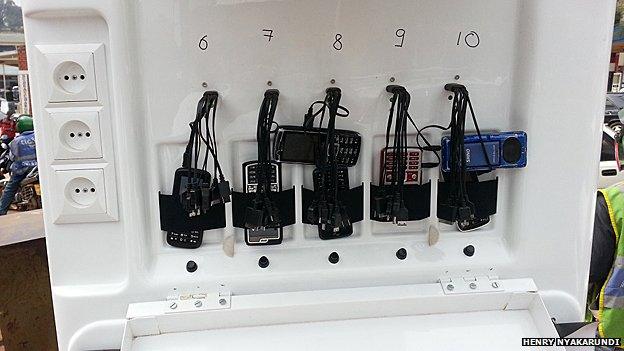
Phones being charged at a mobile solar powered charging station
Ms DeCou and Mr Moore cite different issues, with the Juabar co-founder saying there was a lack of adequate data on population density in the areas where the company works.
"We do our own research to determine ideal places for expansion, as there is limited access to reliable maps of population distribution," she says.
Mr Moore says the main obstacle to the growth of solar in Africa is the unaffordability of purchasing solar power "up front" for consumers, though he believes M-Kopa Solar has been so successful to date because it addresses the affordability barrier head on.
Governments see the light
As the likes of Ms DeCou, Mr Moore and Mr Nyakarundi look to boost access to solar and the entrepreneurial opportunities associated with it, assistance has been on hand from east African governments.
Ms DeCou commends the Tanzanian government for not charging Value Added Tax (VAT) on solar products, which she says is a great support to the industry and helps to increase access.
"Beyond that, there are specific government programmes to help facilitate rural energy access," she adds.
"East African countries offer VAT exemption on all solar products, which is a big saving for a small company like ours," Mr Nyakarundi says.
"It will be great to see an east African R&D [research and development] fund for local entrepreneurs that wants to develop new innovative technology to solve our local challenges, so we can stop just importing foreign technology - which most of the time is not designed for the African market - and create a new industry that can level the playing field between Africa and the rest of the world."
- Published23 January 2015

- Published20 January 2015
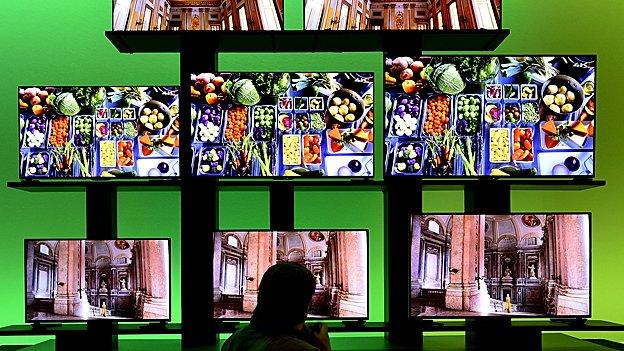
- Published16 January 2015
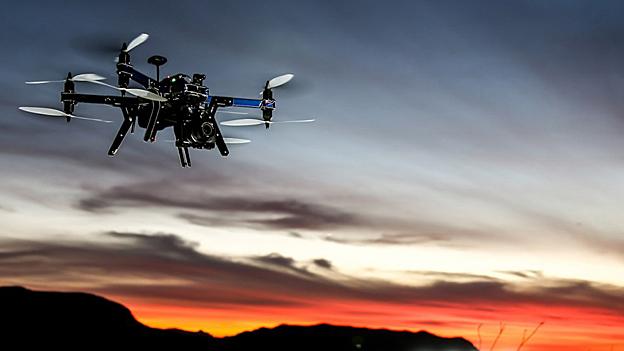
- Published13 January 2015
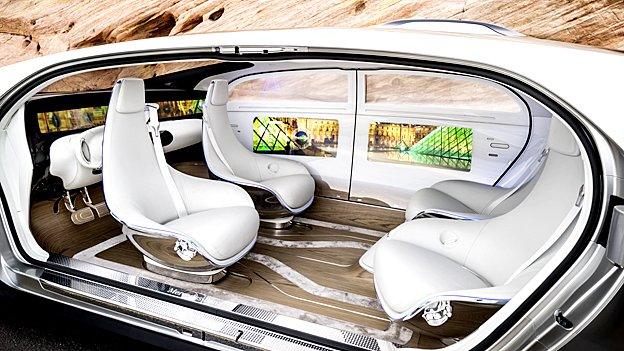
- Published8 January 2015
